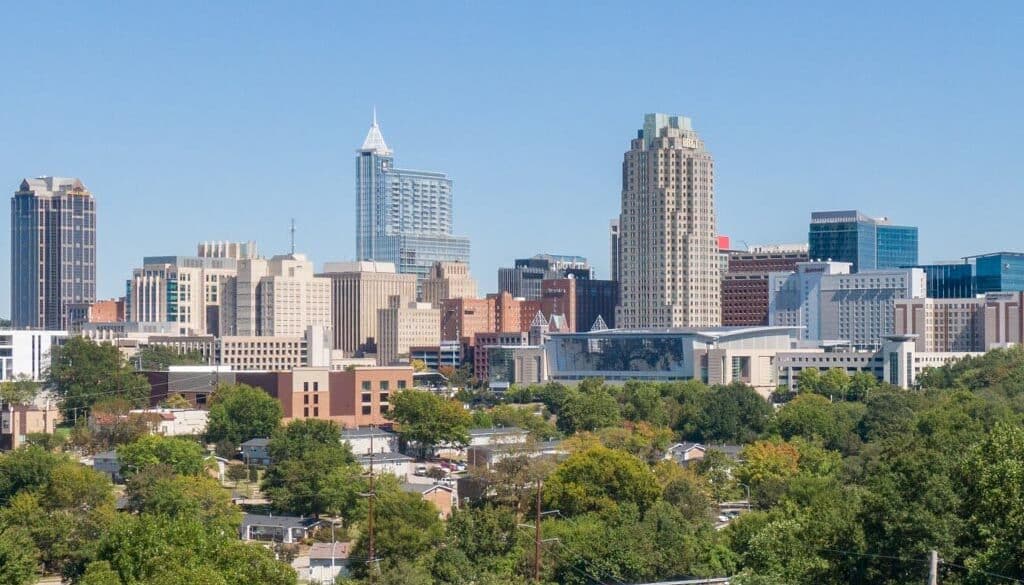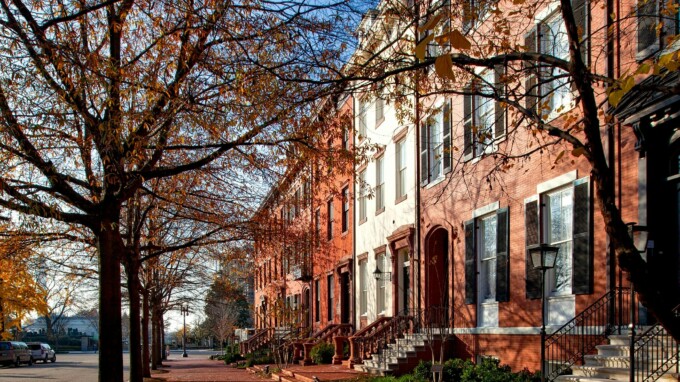Raleigh, NC City Profile
Raleigh is a wonderful city and community for families and businesses alike. We break down what to know about the city here!

Raleigh, NC is a wonderful city and community for families and businesses alike. In fact, Raleigh routinely makes the list of best places to live and work. This should be no surprise to anyone familiar with the area. It boasts a wide variety of neighborhoods, amenities and business opportunities.
We break down what to know about the Triangle area, including an overview of the area’s residential moving, business and commercial real estate trends that are driving the city’s popularity here!
Raleigh Overview
Raleigh and its surrounding area are commonly known as the Research Triangle, or simply, the Triangle. The Triangle represents the metropolitan area between Raleigh, Durham and Chapel Hill. Each of these cities is home to several Tier 1 research universities – North Carolina State University, Duke University and UNC-Chapel Hill, respectively. Since the 1950s, the area has established a strong international reputation for being a great place for tech students, workers and companies alike. Digiday even compared the region to an East Coast Silicon Valley.
Residential Trends in Raleigh, NC
Who’s moving to Raleigh and why?
A quick search of “best places to live” will turn up more than a few lists that include Raleigh. In fact, U.S News & World Report listed Raleigh as No. 5 on its best places to live for quality of life list in 2024, and Milken Institute named Raleigh No. 2 on its best-performing large cities list, according to local news outlet WRAL.
Despite its reputation as a premier tech city, Raleigh doesn’t have an exorbitantly high cost of living like other areas such as San Francisco or Seattle. Cost of living in Raleigh is currently slightly below the national average, with housing being the largest expense in that figure. Raleigh’s official government website lists the median household income at just over $86,000, making a livable wage to cover expenses at $24.70 per hour.
The region has a unique mix of big city offerings and idyllic small-town charm thanks to several local communities with both historic roots and modern-day touches. Looking for great food? From seasonal digs to international fusions in both the city and the suburbs, Axios Raleigh has some great suggestions to bookmark. Need to get your shopping fix? Downtown Raleigh is made up of over 90% locally owned retailers with one-of-a-kind stores.
Further, the state of North Carolina does not tax social security benefits, nor does the state have an inheritance or estate tax, all of which are appealing benefits for those moving to the area.
When you’re thinking about true Raleigh neighborhoods to move to, think Oakwood, Forest Park, Five Points, Boylan Heights and North Hills. But, if you’re looking to be Raleigh adjacent, explore towns like Cary, Garner, Holly Springs and Apex to get a little bit into the suburbs and away from the city center.
Raleigh Business Trends
In addition to being one of the best places to live, in 2025 North Carolina was named the best state to do business by CNBC. Some of the factors that drove this distinction include a strong pool of skilled workers, business-friendly state legislators and a strong state economy.
As noted earlier, the area is often called the Research Triangle, drawing its name from Research Triangle Park (RTP), an office and laboratory development park that’s home to more than 250 companies and 50,000 employees. Originally founded in 1959, RTP has been the driving force behind the area’s reputation as a research and technology destination for some of the world’s biggest and most innovative companies, including Red Hat Software, IBM, Cisco Systems, SAS Institute, Pfizer, Fidelity Investments and many others.
Commercial Real Estate Trends in the Research Triangle
Similar to its perks for job seekers, the Raleigh area also has significantly cheaper office space per square foot than other tech cities. The average sale of Raleigh commercial real estate space in 2024 was $34.74 per square foot, about half of what it is at $66.94 in San Francisco.
Without question, the Raleigh area offers considerable benefits for people of all ages and businesses of all sizes.


